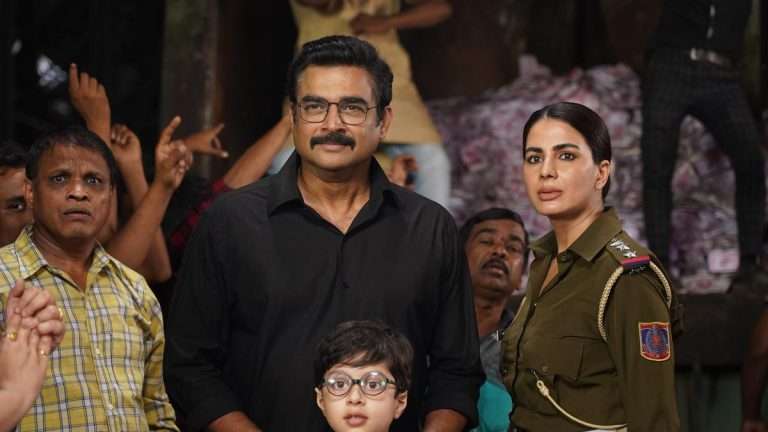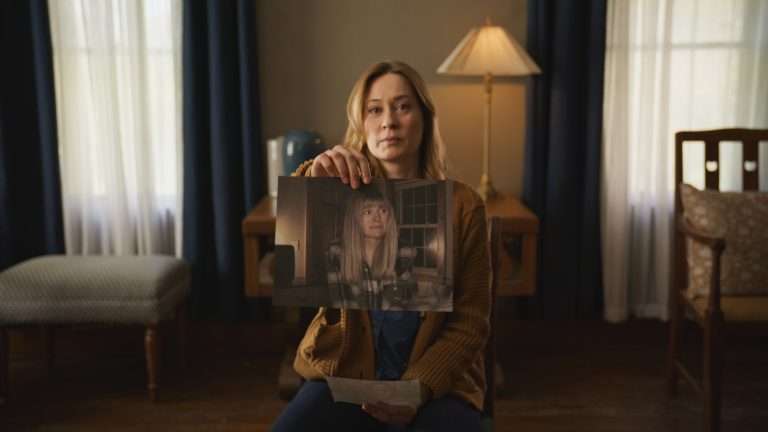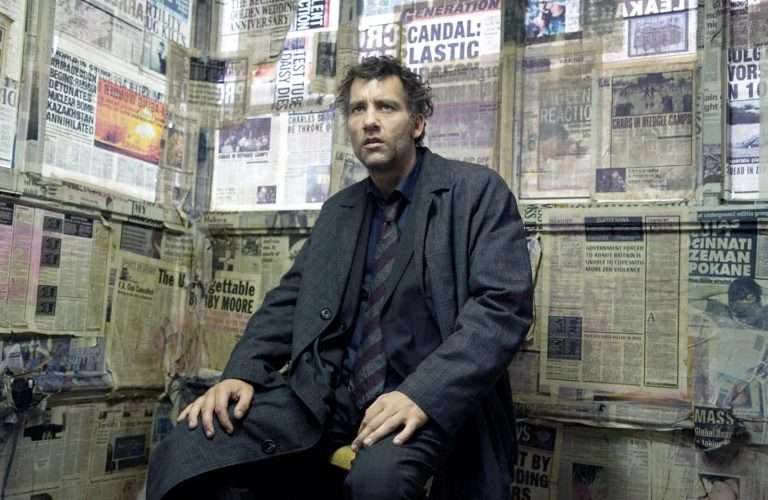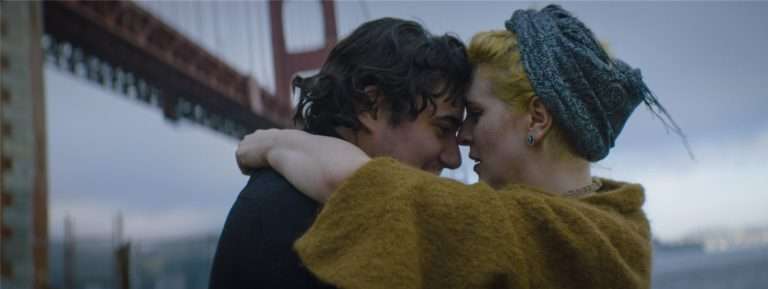In 2024, I watched John Oliver deliver a scathing takedown on food delivery services and the pain that their workers endure because they have no other option. Bordering on ‘cartoon villain twisting moustache’ levels of sinister, there is one story highlighted in this “Last Week Tonight” segment that stands out. We are shown the jaw-aghast story of Kevin Ross: a delivery driver who had his foot broken after being hit by a car on the job. Ross simply has no other choice but to power through the agony to make ends meet. The CNBC news camera pans down to his cast as he cycles through the streets of Washington D.C, it’s horrifying. This is late-stage capitalism nightmare fuel, and it’s happening every single day.
The gig economy is a brutal, unforgiving one. A model where people are oftentimes forced through pain as necessity demands that they provide for something or someone. The epicentre of tolerating pain in order to provide is where you will find Lloyd Lee Choi’s “Lucky Lu.” At its core, this is the same gut-wrenching story about desperation under capitalism, and Choi’s version of it is tender, moving, and gorgeous all the same.
Based on a 2022 short film by Choi (titled “Same Old”), Lu JiaCheng (Change Chen) is a Chinese immigrant who faces the prospect of utter financial devastation when his E-Bike is stolen on the job. No bike? No job. Mmm.. No job? No money. And no money? The rent he owes on his new apartment becomes a race against time to find. And, to make matters worse, his wife, Si Yu (Fala Chen), and daughter, Yaya (Carabelle Manna Wei), are arriving from China. Lu, to say the least, is not feeling so Lucky.
Don’t get it twisted: this isn’t the comedic or grippingly intense riot around the underbelly of NYC à la “After Hours” or “Uncut Gems.” The focus here is not on presenting confrontation for thrills. Instead, the film bleeds a true, vivid melancholy in both location and situation. Speaking in an interview for Naiguan Film, Choi discusses wanting to create a true-to-life account of the city, “…what is New York for real?”, while using lots of greens and blues as the movie’s base color palette. The result is effective, grounding Lu in a world in which millions of people find themselves every single day. The presentation is additionally amplified by a beautiful score led by Charles Humnery, self-described on his website as ‘minimal elegance’, which I think captures the essence perfectly.
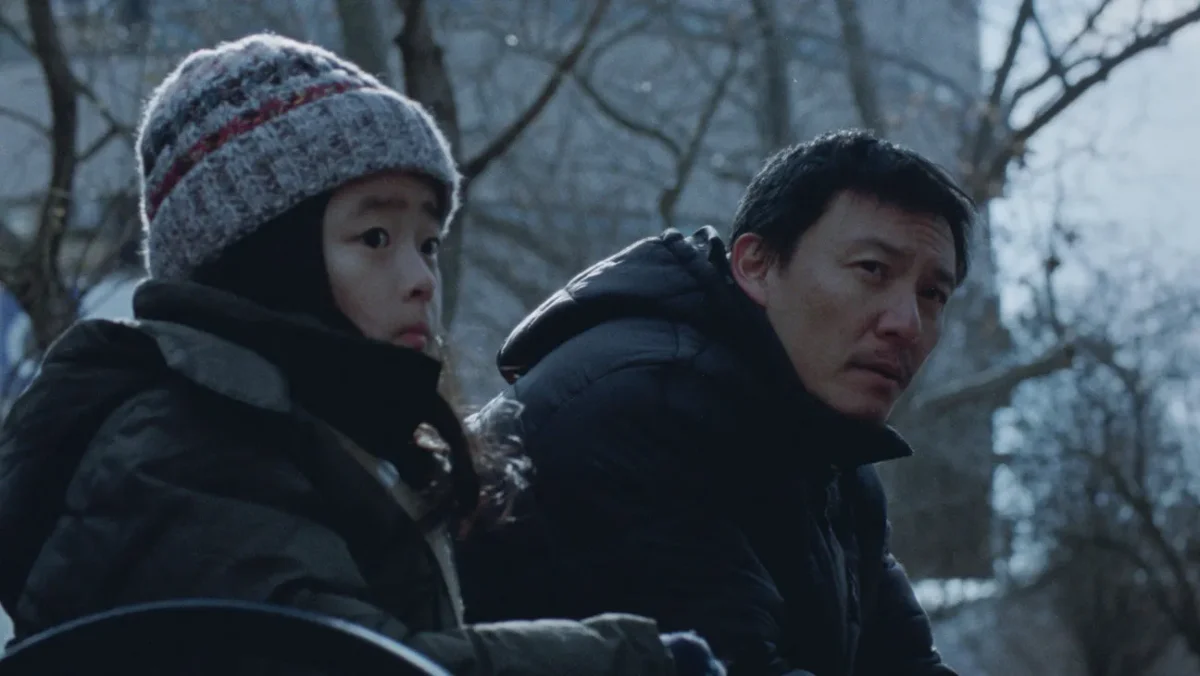
Also Read: How “There Will Be Blood” and “Requiem For A Dream” Explore The Rotten American Dream
Moreover, Choi desired to avoid the stereotype of the “…wholesome immigrant…[Lu’s] a product of the toxic idea of the American Dream”. The characterization is expertly balanced, and – again – realistic. We feel the trials and tribulations weigh on Lu; we watch him indulge in petty crime, we see him threaten people, we see his anger and his shame.
On the other hand, Lu is also a kind and honest man who is simply trying to pay his rent and feed his family. He puts on a smile and says he is “not hungry”, a white lie to prioritize their wellbeing over his. Lu is – like all of us – capable of it all: goodness and badness. In using this approach, there’s a tangible solidarity between us and him. We feel like Lu is a person rather than a heathen or a hero.
None recognizes this two-sidedness more so over the course of the film than his daughter, whom Lu can only do so much to prevent from seeing all sides to his character. As he scrambles to pick up the pieces and gather more cash – when things are getting ever closer to falling apart – mobile phone distractions and lies about needing to run to ‘warm up’ (when they’re actually on the chase for someone who owes Lu money) do not do the trick. Yaya sees all the aforementioned ‘goodness and badness’ that her own father is capable of. In less than a day, she’s witnessed just how damaging the illusion of strength can be in the face of hardship—what life has done to one of her main caregivers, the man who left home to give her a better future.
Throughout “Lucky Lu,” there is also an unforgiving sense of isolation from one’s community, and not feeling like anyone has a helping hand to give. The effect is that the most moving moments of the film are when they do occur, rare as they are. I go back to Ross’ story from the “Last Week” segment; there’s this striking parallel feeling of appalling reality when Lu gets into a physical fight and is accidentally hit by a car.
Limping away from the accident, he greets his daughter with a forced sense of normalcy. Later, we are shown an act of kindness by the very man he fought with. This moment serves as a gentle reminder that we are capable of this compassion. We can design a system that is fairer, based on helping each other when we’re down.
If the American Dream is real, then so are nightmares, and no perfect saviour is coming to wake these workers up. It would be more emotionally devastating if the same events in “Lucky Lu” happened to the nicest man on earth, sure, but that’s not a portrait that sits in the world we live in. It resonates because it happens to a normal, flawed individual. Choi strikes this balance with grace: where suffering and love walk hand-in-hand, and in the final scene of this special film – a bittersweet embrace between father and daughter – we see this captured in its entirety.

![Old Henry [2021] Review – A Lean Western that Leans Too Much on Familiar Tropes](https://79468c92.delivery.rocketcdn.me/wp-content/uploads/2021/09/Old-Henry-2021-768x384.jpg)
